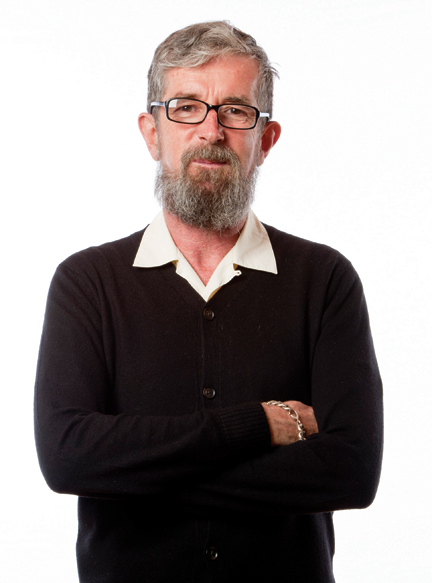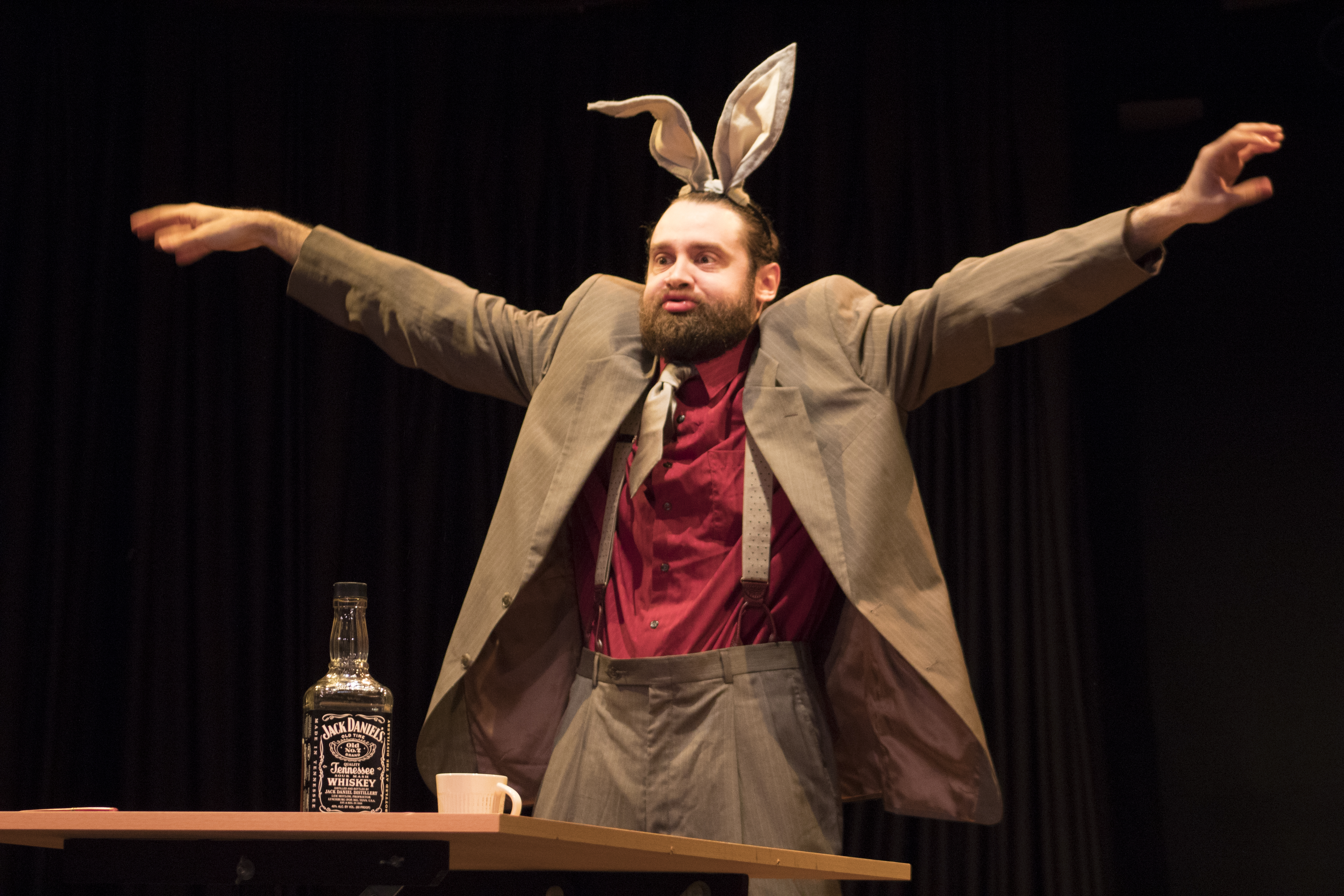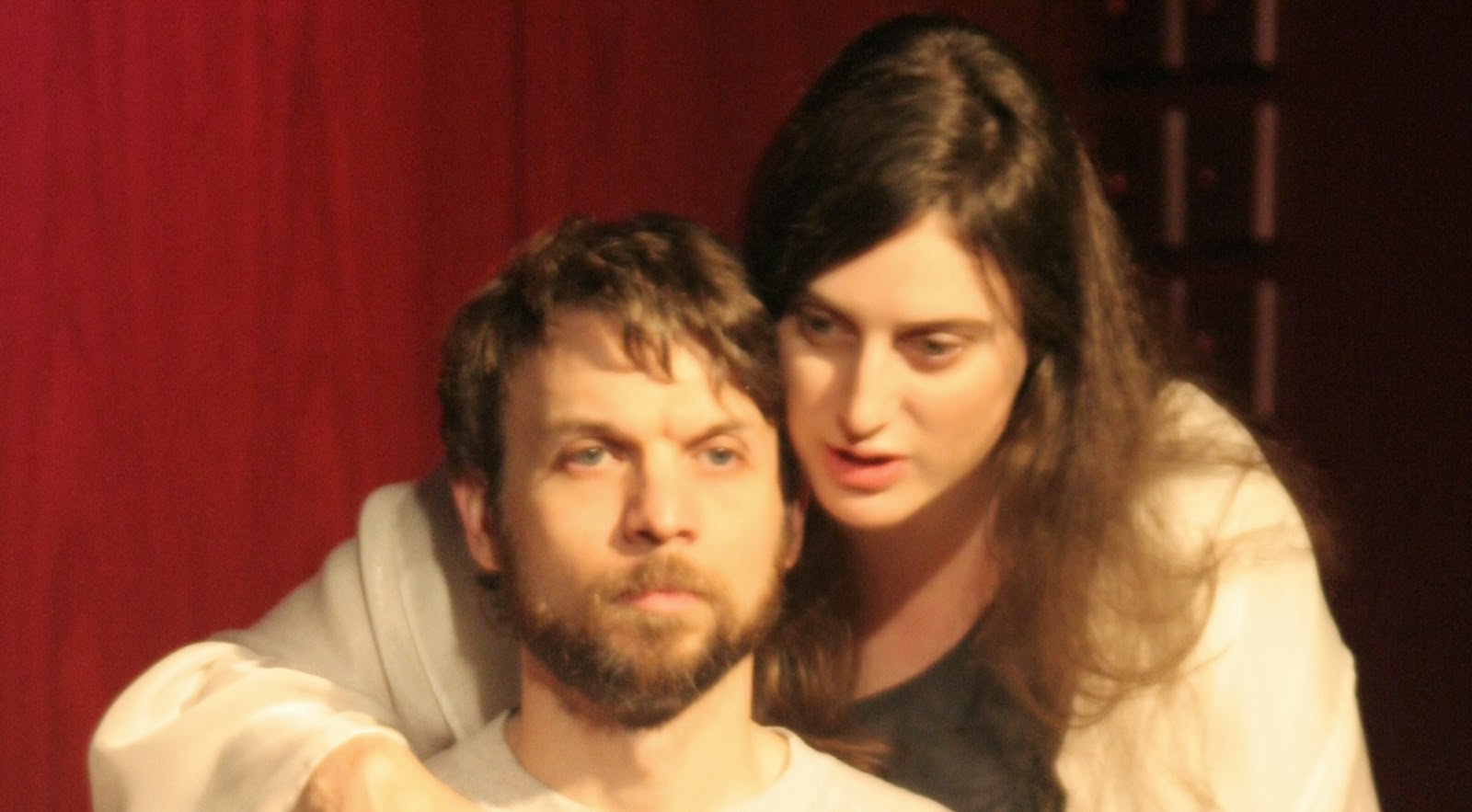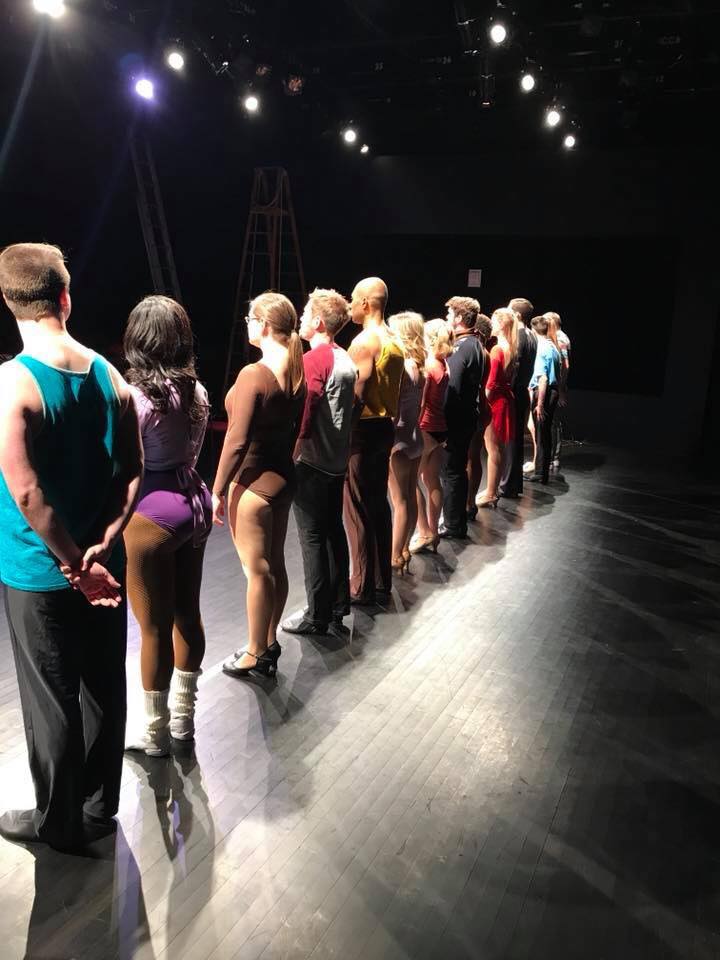Photo of Les Waters by Kertis Creative.
Interview by Scott Dowd. Entire contents copyright ©Fearless Designs, Inc. All rights reserved.
It may be the end of summer for most of us, but Actors Theatre of Louisville’s artistic director, Les Waters, is already thinking about the cold, grey of January and the reprise of a production he directed for the 2004 Humana Festival of New American Plays. A decade later, Waters and playwright Naomi Iizuka are revisiting the banks of Beargrass Creek with a re-envisioned production of her play At The Vanishing Point that is set in Louisville’s historic Butchertown neighborhood. We spoke recently as he took a break from working with Iizuka, and he gave me an overview of the plays for the upcoming season. This year, Actors Theatre has set out to really engage its audience – to give them more insight into the productions and truly enhance their theatre experience.
Les Waters: We have several new things planned, such as conversations with the audience before and after productions. We will also be providing more lobby displays with materials that will offer a deeper understanding of the play’s context to prepare audiences before the shows. It’s exciting!
Scott Dowd: Why has Actors Theatre decided to place an emphasis on this element of the theatre-going experience?
LW: Everyone at Actors Theatre understands that we are here to respond to audience needs. People want to know more about the shows. They want to know about the process of putting the shows on stage. For instance, we have been running a free series called “Behind-the-Scenes Tech Events” that allows people to watch certain shows in the process of a technical rehearsal on a Saturday evening. They have been very popular because people want to know how the shows are made and this is an exciting way to give them a look behind the scenes.
SD: What is a good description of a technical rehearsal?
LW: A technical rehearsal, as you might infer, is really for the benefit of all of the people working behind the scenes. It gives the director and their team the opportunity to solidify light and sound cues and address any issues with props. Stage managers make sure everyone knows where they are supposed to be at any given time to ensure things run smoothly off-stage. If there are costume or prop changes, we make certain there is enough time for the transformation to be completed. And it’s another opportunity for the actors to see the entire production from beginning to end.
SD: The tech event for Love’s Labour’s Lost is coming up already at the end of this month.
LW: That’s correct. That will be on Saturday, August 30, at 7 p.m.
SD: During the following week you will be opening a photo exhibition that chronicles Actors Theatre’s history of Shakespearian productions, highlighting specifically the Bingham family’s attachment to these works.
LW: The Binghams have been active supporters of this classic series for many years. Their passion has allowed Actors Theatre to showcase Shakespeare for decades. Isaac Newton said, “We stand on the shoulders of giants,” and Shakespeare is acknowledged as the greatest of all writers. We measure ourselves against these works, and it is important that they remain a vital part of the repertory.
SD: You are opening the 2014-2015 season with a classic. Was that just a matter of timing?
LW: I thought it would be fun and that it would be a delightful offering to our audience to watch a play about people falling in love.
SD: One of the things I have appreciated over the years is Actors Theatre’s ability to find new, valid interpretations of the plays – whether they are staged in a classical sense or re-imagined. What is your approach to Love’s Labour’s Lost?
LW: The core artistic team for Love’s Labour’s Lost is a group based in Minneapolis called The Moving Company. Dominique Serrand, Steven Epp and Nathan Keepers are former artistic directors of Theatre de la Jeune Lune, which our audiences may remember from productions in the past such as Moliére’s The Miser from the 2004-2005 season. They have also been part of previous Humana Festival productions. One of the great theatre companies in America, The Moving Company, has great humor, a great visual sense and wonderful physical skills. They describe their approach to this production as “a new event of conjugations on love.”
SD: Can you shed a little more light there?
LW: The play is about love. All the famous couples in Shakespeare’s works who have fallen in love are appropriated in various ways to enhance the production of Love’s Labour’s Lost. I hope lovers of the Bard will plan now to experience this exciting interpretation running most of September.
SD: Following that, you are presenting a musical.
LW: Yes, beginning October 7 we’re producing Jason Robert Brown’s The Last Five Years. It’s a small-scale musical with six musicians and a cast of two. However, it’s not small in its emotional landscape. It charts the last five years of a couple’s relationship. What is interesting about this work is the time structure. The man starts the story from the beginning as they are falling in love, while the woman begins at the end of their union so that their timelines merge in the middle. The music for this show is incredibly beautiful. Meredith McDonough, who is our very talented associate artistic director here, is a huge fan of this piece. She is a lover of musicals in general, and I’m delighted that she is going to show her directing strengths to our audiences. I really believe her passion will drive this piece forward.
SD: Can you give some background on Brown’s previous credits?
LW: Audiences will remember him from his Broadway productions Parade and The Bridges of Madison County. He wrote the music and lyrics for both.
SD: The Last Five Years will be in the Pamela Brown Auditorium at the same time Dracula is playing in the Bingham Theatre.
LW: That’s right. Bill McNulty is once again directing his autumn classic. Fans have come to look forward to this production every season. I love meeting people in the community who can discuss eight different versions of the shows they’ve seen and describe what they like, what they don’t like, and how the show has changed over time. It’s a piece – the same as A Christmas Carol – of which people in the community have a sense of ownership. In their own way, both shows are community rituals. We have a completely new design for A Christmas Carol this year, by the way, and I’m very much looking forward to introducing it on November 25.
SD: A new design for A Christmas Carol ? Can you tell me any more about the new production?
LW: It seemed time for a new design. We need to keep the show fresh, and we’ve had the previous production for several years. So we charged our new design team to come up with a lovely new vision. What’s also good about this process is that every time we look at A Christmas Carol anew, a different aspect of the story is enhanced. Over time, audiences come to have a much fuller appreciation for the genius of Dickens’ insights.
SD: Just prior to A Christmas Carol you will be opening Nina Raine’s Tribes.
LW: Nina Raine won the Most Promising Playwright in Britain award several years ago. Tribes premiered at the Royal Court Theatre, where I trained to be a director, and has been a huge success both in England and in the states. I think it’s an absolutely extraordinary play about the dynamics of family life – how we talk to each other and how one’s voice is heard in a family. The youngest son in the play is deaf and has been raised to read lips, but he feels as though nobody has been listening to him. The play is about his relationship with his family and his relationship with a young woman who has grown up using sign language. I’ve seen several productions around the country and have been impressed with its honesty and its passion and its excitement.
SD: I’ve had the opportunity to hear Nina discuss the work, and she exudes passion for this subject that has attached itself to her.
LW: That’s exactly what it feels like. It’s always wonderful when you encounter a play where the playwright has a real necessity to be writing about the subject.
SD: In early January 2015, Actors Theatre is presenting The Brothers Size by another young, new playwright – Tarell Alvin McCraney.
LW: I’ve been following Tarell’s work for some time now. Last year he was one of the youngest recipients ever to receive one of the MacArthur Fellowship “Genius Grants.” This is part of a trilogy of plays, but it doesn’t matter if you haven’t seen the other two parts. I think his writing is beautiful, lyrical and daring. The play is set in the Louisiana bayous and it’s about the relationship between two brothers. I’m really honored that Actors Theatre is introducing a new voice to the theatregoing community here. I think Tarell is indeed one of the great young African-American playwrights.
SD: The Brothers Size is set in Louisiana but it has strong roots in West Africa.
LW: Yes, it draws on Yoruba myths.
SD: Some of the lyricism you are talking about is also a reflection of Yoruba culture.
LW: Tarell is very conscious of writing from another tradition. I’m particularly pleased that he is teaming up again with director Tea Alagic, who was a classmate of his at Yale and directed the original production of this play. I am delighted that they are working together again here in Louisville.
SD: At the beginning of our conversation, we talked about the fact that you have already been in workshop for At The Vanishing Point, a play that was inspired by one of Louisville’s own neighborhoods.
LW: The play is inspired by two things, really: the community of Butchertown; and the great photographer Ralph Eugene Meatyard, who lived in Lexington. Naomi Iizuka originated At The Vanishing Point during the 2004 Humana Festival, and it was originally produced in a warehouse on Cable Street. It’s a play about how we look at things – how we view our family, how we view community and how communities change. It’s a contrast between the appearance of permanence and the state of flux. I’m really delighted that Ben Sollee, a native of Lexington, is writing music specifically for the production and which he will also perform live every evening.
SD: That component is likely to attract a new audience to the theatre.
LW: I hope so. We live in a state and a city with great music traditions, and I’m very pleased that an iconic figure like Ben will be sharing the stage with us.
SD: The Humana Festival of New America Plays is nearly eight months away at this point. Is the line-up set?
LW: Reading for the Festival began six weeks ago and we know for sure one of the plays, which is a commissioned work. We are still receiving submissions from writers, agents and theatre festivals around the country, and we are talking with a variety of people about new material. Finding, reading and developing material for the Humana Festival is really a year-long process.
SD: 2014-2015 is Actors Theatre’s 51st season, and last year was a celebratory season. Can you give me your thoughts on the Golden Anniversary?
LW: I think it was a great 50th year! We, at the theatre, were bowled over by people’s loyalty and how much the theatre means to them. I’m thrilled that we produced a diverse, eclectic mix of material, including Our Town, which I was privileged to direct. The sense of community here and the theatre community represented in that play was central to what happens here at Actors Theatre of Louisville. I also think we had an outstanding Humana Festival. I’m enormously proud of the new work from last season, and some of that is going on to be seen in other theatres in other towns in the future. The 2015-2016 season will, of course, mark another milestone as the Humana Festival of New American Plays will be celebrating four decades of showcasing contemporary American playwrights. Actors Theatre is a major part of the legacy of finding new American voices, and I’m very honored to be part of that.
For more information about Actors Theatre of Louisville and its 2014-2015 season, go to actorstheatre.org, call the box office at 502.584.1205 or stop by the box office at 316 West Main Street. Season tickets are still available, beginning at $125 per person.






